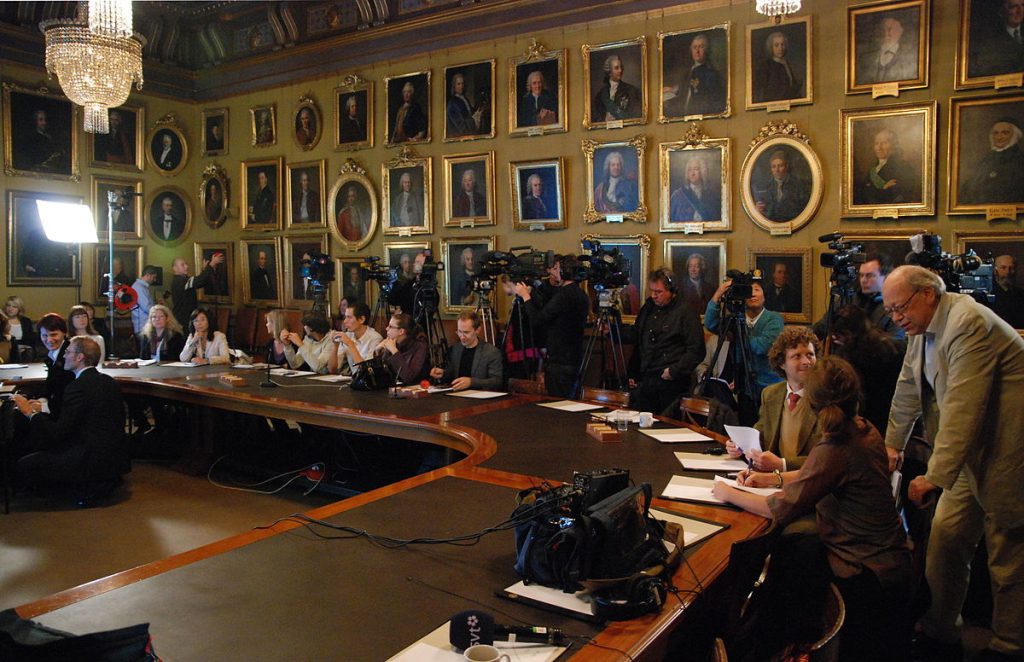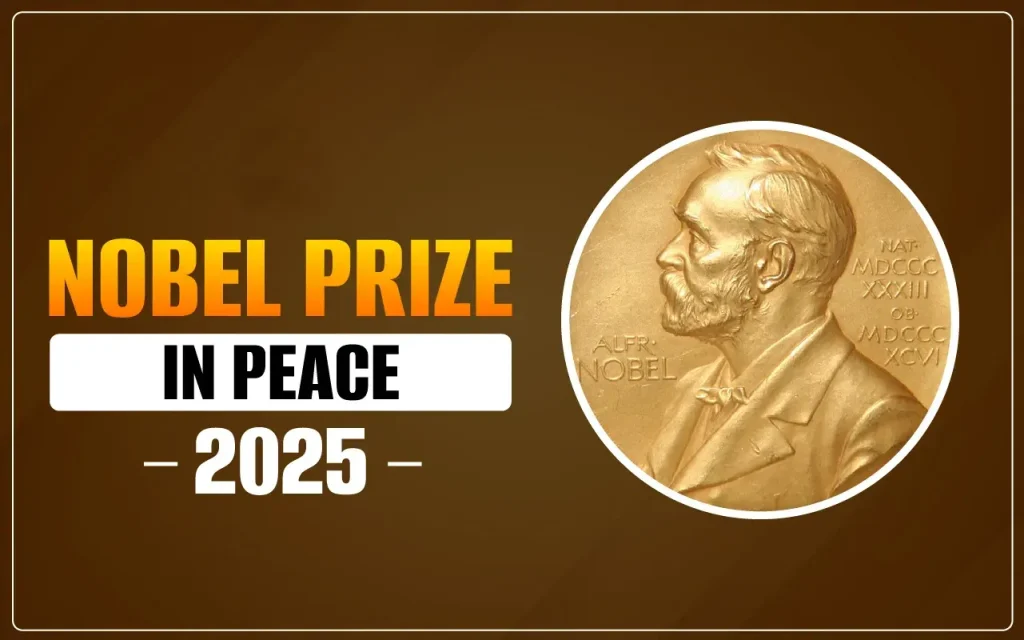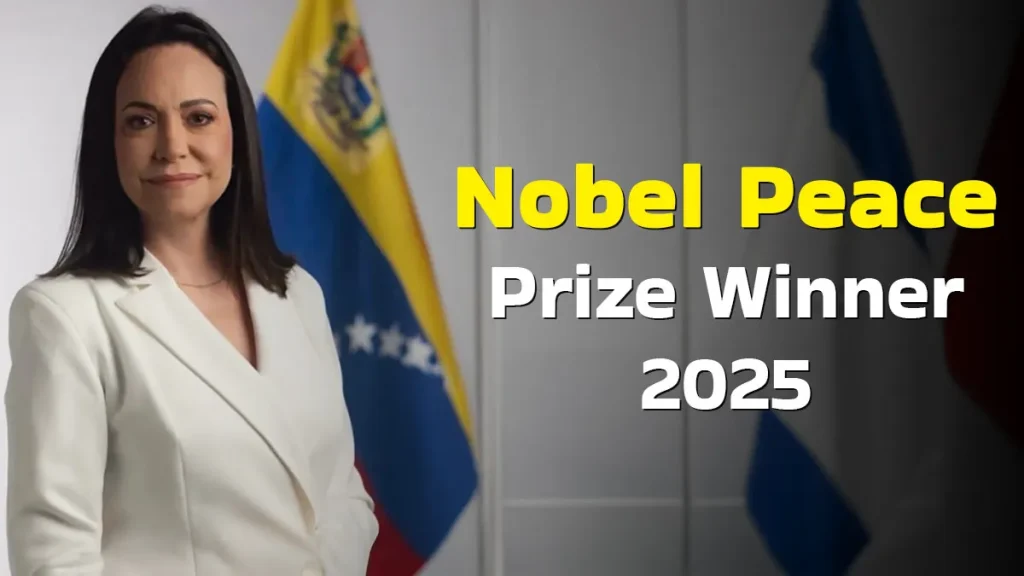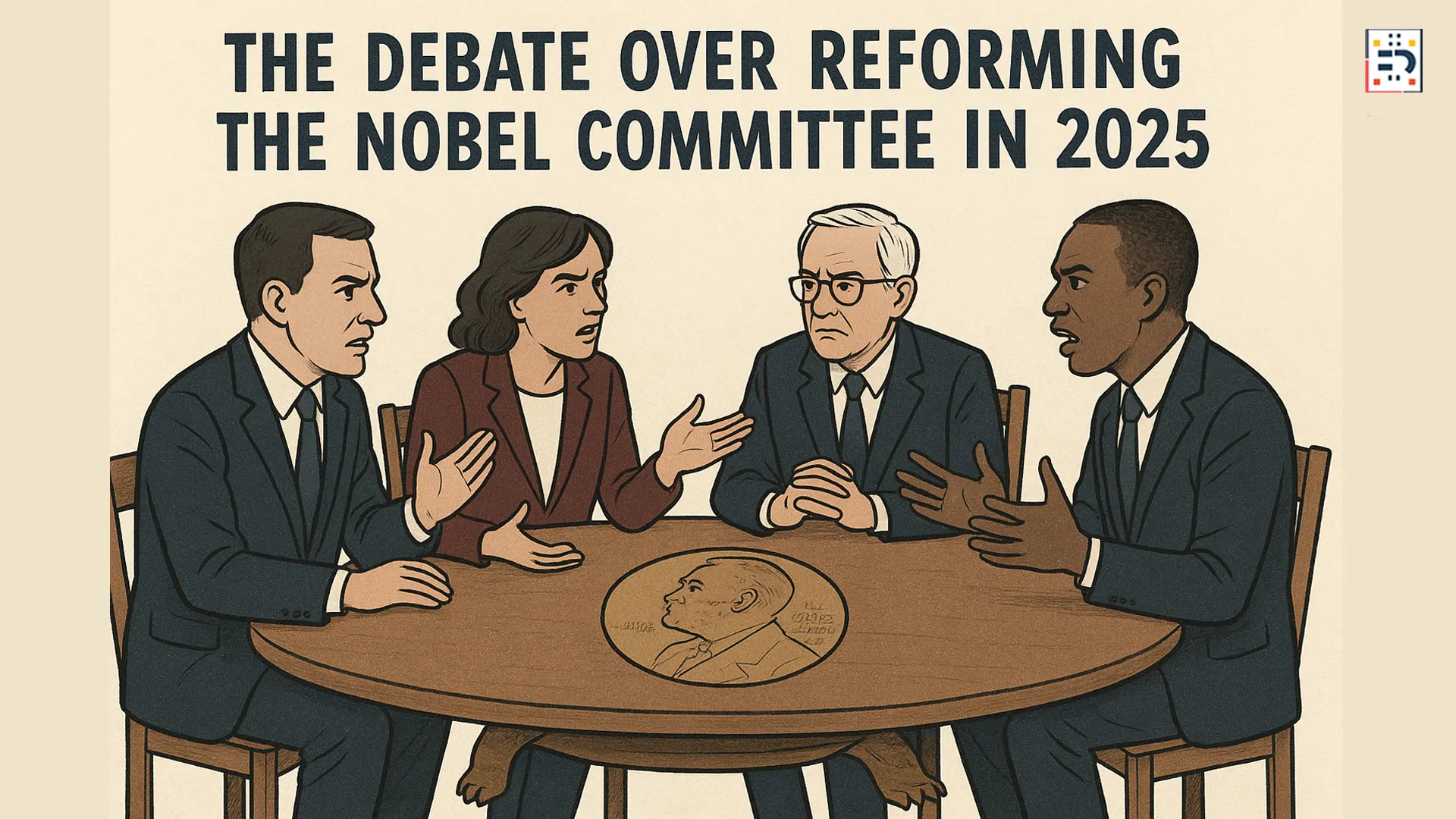Key Takeaways
- María Corina Machado wins 2025 Nobel Peace Prize for democratic advocacy in Venezuela
- President Trump’s Nobel campaign unsuccessful despite White House lobbying efforts
- Nobel Committee faces mounting pressure for transparency and diversity reforms
- 338 candidates considered for Peace Prize, highlighting selection challenges
- Bipartisan calls for modernization of century-old Nobel Prize system
As the 2025 Nobel Prize season concludes with Venezuelan opposition leader María Corina Machado receiving the Peace Prize, the prestigious 130-year-old institution finds itself at a critical crossroads. The awards, established by Alfred Nobel’s will in 1895, face unprecedented questions about transparency, political influence, and whether their selection processes adequately reflect the complexities of our modern, interconnected world.
Breaking: 2025 Nobel Peace Prize Announcement Sparks Controversy
The 2025 Nobel Prize announcements have generated both widespread acclaim and intense controversy across America. While scientific prizes recognized groundbreaking achievements—including Mary E. Brunkow, Frederick J. Ramsdell, and Shimon Sakaguchi for their discoveries in peripheral immune tolerance, and László Krasznahorkai for his visionary literary contributions—the Nobel Peace Prize selection has reignited familiar debates about the committee’s decision-making process.
Why This Matters to Americans: The award to Machado came amid intense speculation about other candidates, including U.S. President Donald Trump, who had openly lobbied for the prize following his role in negotiating various international agreements. The White House’s sharp reaction to Trump’s exclusion underscores the politically charged atmosphere surrounding these prestigious awards.
According to reports from major U.S. news outlets, White House Communications Director Steven Cheung accused the Norwegian Nobel Committee of putting “politics over peace,” reflecting broader American concerns about international institutions’ decision-making processes.

The Case for Nobel Prize Reform: Transparency and Accountability Crisis
Critics of the current Nobel Prize system point to several fundamental concerns that demand immediate attention from American policymakers and international observers:
Opacity in Selection Process
The Nobel Committee maintains strict confidentiality about its deliberations for 50 years. While this tradition aims to protect the integrity of the process, it also shields the committee from immediate accountability and prevents public understanding of how decisions are made. In an era demanding institutional transparency—from Fortune 500 companies to government agencies—this secrecy increasingly appears anachronistic and out of touch with modern governance standards.
Geographic and Cultural Bias in Nobel Prize Winners
Historical analysis reveals persistent patterns favoring Western institutions and individuals. Despite global scientific and humanitarian contributions from Asia, Africa, and Latin America, laureates disproportionately come from North America and Europe. According to research on Nobel Prize diversity, only 25 of 757 Nobel Prizes in sciences or economics have gone to women, with similar disparities affecting racial and geographic representation.
Political Pressure and International Influence
The 2025 Peace Prize deliberations exemplify how political considerations inevitably intersect with Nobel selections. With 338 candidates, including 244 individuals and 94 organizations, the committee faced enormous pressure from various quarters, including direct lobbying from the White House.
As reported by TIME Magazine, President Trump’s open campaign for the prize—citing his roles in Middle East agreements and other diplomatic efforts—created an unprecedented situation where a sitting U.S. president actively sought the recognition, raising questions about the independence of the selection process.
Current Reform Proposals: What’s Being Discussed in 2025
Reform advocates have proposed several concrete changes to modernize the Nobel Prize Committee structure:
Expanding Committee Composition
Critics argue that the five-member Norwegian Nobel Committee for the Peace Prize, appointed by the Norwegian Parliament, represents too narrow a perspective. Proposals include expanding membership to include diverse international voices and expertise, ensuring representation from various regions, gender identities, and professional backgrounds.
Modernizing Transparency Standards
While maintaining some confidentiality to prevent lobbying and political pressure, reformers suggest implementing staged disclosure practices. This could include publishing aggregated statistics about nomination pools, demographic breakdowns, and general decision-making criteria within shorter timeframes—perhaps reducing the confidentiality period from 50 years to 25 years.

Broadening Eligibility Criteria
The Nobel Peace Prize’s focus on individuals and organizations could expand to recognize collective movements and grassroots efforts that don’t fit traditional hierarchical structures. Similarly, scientific Nobel Prizes might better acknowledge collaborative research teams rather than limiting awards to three individuals—a restriction increasingly at odds with modern scientific practice.
Establishing Independent Review Mechanisms
Creating external oversight bodies to periodically review committee processes, diversity of selections, and adherence to Alfred Nobel’s original intentions could enhance credibility and accountability. Such mechanisms are standard in many American institutions and could serve as a model for international reform.
Defenders of Tradition: Why Some Oppose Nobel Prize Changes
Supporters of the current system argue that the Nobel Prize’s prestige derives precisely from its independence and traditional practices:
Protection from Political Interference
The committee’s insulation from immediate political pressures allows it to make principled decisions without succumbing to popular opinion or governmental influence. The 50-year confidentiality rule prevents committees from being swayed by threats of public criticism or political retaliation.
Quality Over Representation
Defenders maintain that Nobel Prizes should recognize exceptional achievement rather than ensure demographic or geographic quotas. They argue that merit-based selection, however imperfect, serves Nobel’s vision better than representative selection that might compromise quality for diversity.
Historical Track Record of Excellence
Despite controversies, the Nobel Prize has recognized numerous transformative contributions to humanity over its 124-year history. Its long history and rigorous standards have created a legacy that reforms might inadvertently undermine.
The American Perspective: 2025’s Heightened U.S. Attention
The 2025 Nobel season attracted unusual American attention, partly due to President Trump’s public campaign for the Peace Prize. His administration pointed to various international agreements, including Middle East peace initiatives and conflict resolutions, as evidence of peacemaking credentials worthy of recognition.
The committee’s decision to recognize Machado instead—honoring her struggle for democracy in Venezuela—sent a clear message about the types of contributions the committee values. According to U.S. State Secretary Marco Rubio’s earlier statements, he called Machado the “Venezuelan Iron Lady” and “the personification of resilience, tenacity, and patriotism,” though the administration’s tone shifted after the announcement.
Poll Watch: Early polling suggests Americans are divided on whether the Nobel Committee made the right choice. Republican voters largely supported Trump’s candidacy, while Democrats and Independents showed mixed opinions on whether peace prizes should recognize diplomatic agreements or grassroots democratic movements.
This episode has intensified American debates about the Nobel Prize’s relevance and legitimacy. Some view the committee’s independence as admirable resistance to political pressure, while others see it as out-of-touch European elitism. These divergent perspectives reflect broader questions about international institutions’ roles in recognizing achievement and moral authority in an increasingly multipolar world.
Nobel Prize Criticism: What Experts Are Saying
Leading voices in academia, journalism, and diplomacy have weighed in on the Nobel Prize reform debate:
Academic researchers point out that the Nobel system’s geographic bias isn’t merely historical—it’s structural. The nomination process itself favors individuals connected to elite Western institutions, creating a self-perpetuating cycle that limits discovery of worthy candidates from underrepresented regions.
American diplomatic experts note that while political considerations are inevitable for a Peace Prize, the lack of transparent criteria makes the process appear arbitrary. This perception undermines the prize’s soft power influence in promoting peace and democratic values globally.
The Path Forward: Evolutionary Rather Than Revolutionary Change
Most reform advocates recognize that wholesale restructuring of the Nobel Prize system appears both unlikely and potentially counterproductive. Instead, they propose evolutionary changes that preserve the awards’ prestige while addressing legitimate concerns:
Incremental Transparency Improvements
Reducing the confidentiality period from 50 to 25 years, publishing anonymized data about nomination pools and selection criteria, and providing more detailed public explanations of decisions could enhance understanding without compromising independence.
Diverse Advisory Panels
Establishing international advisory bodies to assist committees with identifying worthy candidates from underrepresented regions and fields could broaden perspective without removing final decision-making authority from the established committees.
Enhanced Nomination Processes
Actively reaching out to institutions and experts in developing countries, encouraging nominations of collaborative work, and providing clearer guidance about selection criteria could improve the candidate pool’s diversity and quality.
Periodic Process Reviews
Commissioning independent evaluations of selection processes every decade, with findings publicly shared, could identify areas for improvement while demonstrating commitment to continuous enhancement and accountability.
What This Means for Future Nobel Prize Winners
Looking ahead to future Nobel Prize ceremonies, the pressure for reform will likely intensify. The 2025 controversies have brought unprecedented attention to the selection process, particularly in the United States where Nobel Prize winners are celebrated as national heroes and symbols of American excellence.
For aspiring Nobel laureates, the message is clear: groundbreaking work remains the primary criterion, but increased attention to diversity and representation may create opportunities for researchers, writers, and peacemakers from previously overlooked regions and backgrounds.

Balancing Tradition and Progress in the Nobel Prize Era
The Nobel Prize stands as one of humanity’s most recognized symbols of excellence. Its capacity to draw global attention to critical work in science, literature, and peace remains unmatched by any other award. However, like all century-old institutions, it must grapple with whether its structures and processes adequately serve contemporary needs.
The 2025 awards season, with its mixture of scientific celebration and political controversy, exemplifies both the Nobel’s enduring relevance and its growing pains. María Corina Machado’s recognition highlights genuine commitment to honoring courageous democratic advocacy, yet the surrounding debate reveals how challenging it has become for any institution to navigate today’s polarized global landscape.
The question facing the Nobel committees is not whether to change—some evolution seems inevitable—but how to modernize thoughtfully. The goal should be preserving the awards’ credibility and independence while ensuring selection processes remain responsive to humanity’s diverse contributions to knowledge, culture, and peace.
As we move deeper into the 21st century, the Nobel Prize’s ability to balance tradition with necessary reform will determine whether it remains the gold standard for recognizing human achievement or becomes increasingly seen as a relic of a bygone era. The debate over reform isn’t really about the Nobel Prize itself—it’s about what kind of excellence we value, how we recognize it, and who gets to decide.
#NobelPrize #NobelReform #PeacePrize #Machado #Trump #Transparency #Diversity


